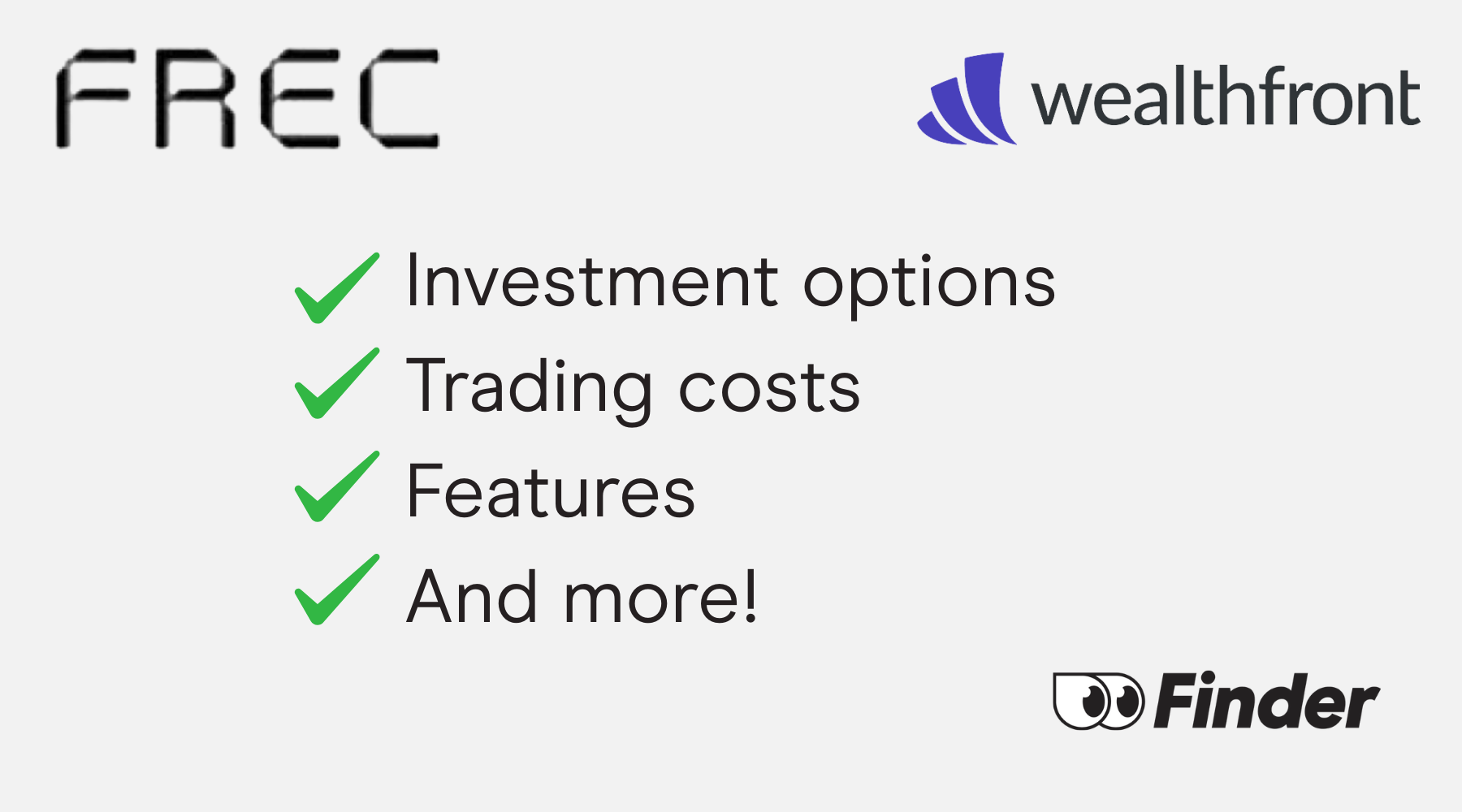Frec vs. Wealthfront Direct Indexing

Frec and Wealthfront are two US-based, SEC-regulated robo-advisors that offer automated investing, individual stock trading and a high-yield cash option. While Frec’s focus is on direct indexing and tax-efficient strategies, direct indexing is just one of Wealthfront’s portfolio options.
These trading apps are solid choices for hands-off investors, depending on your preferred strategy.
Here’s how they compare.
Frec vs. Wealthfront: A quick comparison
Need help choosing a stock trading app? View our best picks
Find a robo advisor that will do the work for you to maximize your investment.
How features compare
| Individual stock trading | Yes | Yes |
| Human financial advisor | No | No |
| Fractional shares | Yes, for $5 | Yes, for $1 |
| Automatic dividend reinvestmen | Yes | Yes |
| Automatic rebalancing | Yes | Yes |
| Educational resources | Articles | Articles |
How the platforms compare
Frec and Wealthfront offer user-friendly platforms that are easy to navigate. Wealthfront is available on the web, iOS app and Android app. Frec is available on the web and iOS app.
Frec
Wealthfront

The similarities
Frec and Wealthfront are robo-advisors that offer individual commission-free stock and exchange-traded fund (ETF) trading, fractional shares, high-yield cash options and educational resources to help you learn and grow as a trader and investor. Both offer S&P 500 direct indexing for 0.09% annually and a $20,000 minimum, as well as automatic rebalancing and automatic dividend reinvestment.
Neither offers access to a human financial advisor.
Which broker is better for beginners?
Both Frec and Wealthfront are beginner-friendly robo-advisors, but they serve slightly different types of users.
Beginners who want comprehensive direct indexing at a low cost might choose Frec for its broad index availability. Beginners who want automated ETF and bond investing will find Wealthfront a better option.
Which broker is better for advanced traders?
Both being robo-advisors, neither Frec nor Wealthfront can serve advanced traders. While both provide individual stock and ETF trading, neither offers the tools and resources advanced traders need to be successful.
Which one’s safer and more reliable?
Both Frec and Wealthfront are Registered Investment Advisors regulated by the US Securities and Exchange Commission (SEC) and the Financial Industry Regulatory Authority (FINRA).
Both platforms are also considered safe and secure. Frec holds customer funds at Apex Clearing, encrypts customer information and uses 2FA for security. Wealthfront uses 2FA and partners with third-party providers that employ bank-grade security.
Frec vs. Wealthfront: Which one’s better?
Frec is ideal for investors who want low-cost access to direct indexing and tax-efficient investing, especially for those who prefer more control over individual stocks. On the other hand, Wealthfront offers a truer robo-advisor experience in the traditional sense, with automated ETF and bond investing.
If you want a more comprehensive direct indexing platform, go with Frec. If you want a broader robo-advisor — one with direct indexing strategies — Wealthfront is the better pick.
Alternatives to Frec and Wealthfront
Frec and Wealthfront are solid choices for beginners and hands-off investors due to their user-friendly interfaces and automated investment options. However, if you’re looking for more advanced tools to trade yourself, there are other platforms worth considering.
- Webull: Webull targets seasoned traders by offering sophisticated charting tools, technical indicators and highly customizable charts. It also features paper trading for strategy practice with virtual funds and supplies, comprehensive market data, real-time quotes, Level 2 market data (at a cost), financial calendars, news feeds and robust screeners to identify investment opportunities.
- Public: Public offers commission-free stock, ETF and options trading, as well as crypto, bonds and Treasuries. Subscribe to Public Premium to unlock enhanced data and trading features, such as deeper metrics, premium data and advanced charts.


